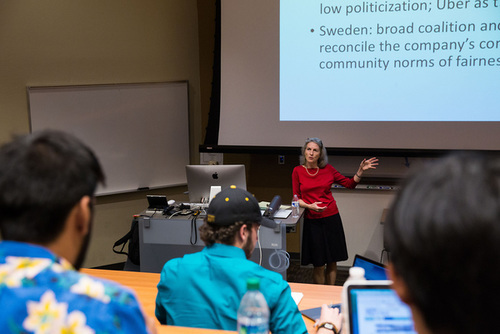Uber a 'shared shock' around the world that created a perfect experiment
At ASU event, MIT political scientist shares her research on the widely varying reactions to the ride-sharing app in 3 different nations
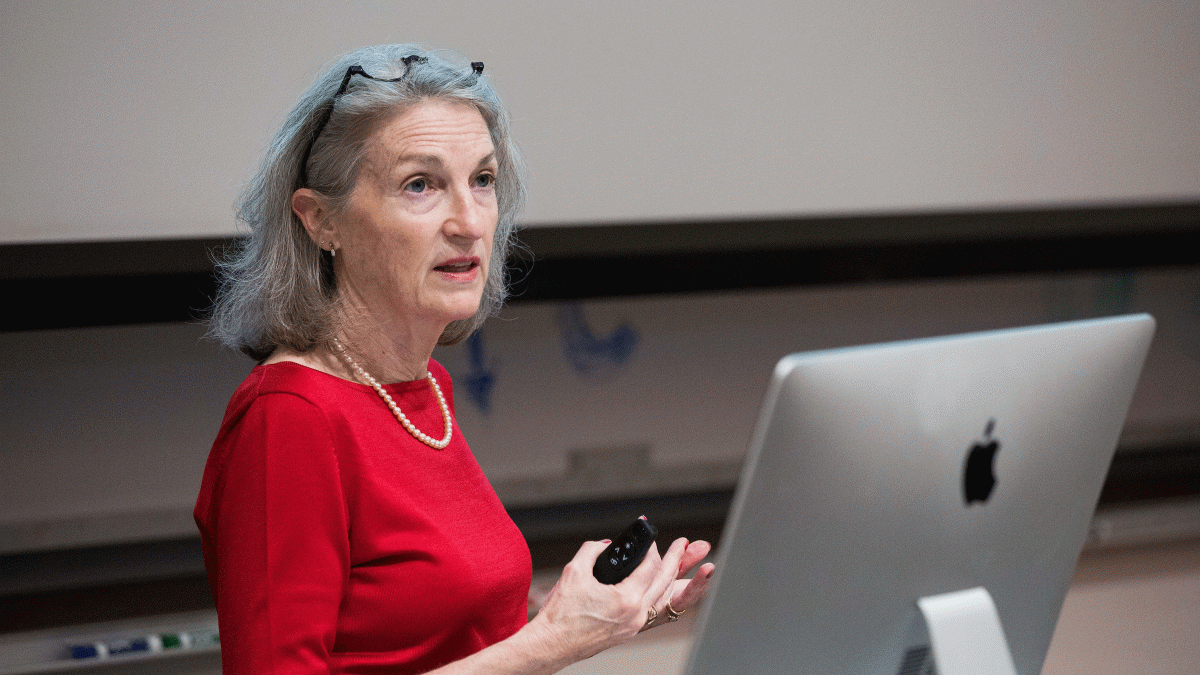
The ride-sharing platform Uber burst onto the scene a few years ago, creating a “shared shock” in several countries at about the same time with its disruptive practices. And that makes it the perfect natural experiment.
“For a comparative political scientist like me who likes to study how things work across different countries, Uber is a wonderful case because it spread quickly across the globe,” said Kathleen Thelen, the Ford Professor of Political Science at the Massachusetts Institute of Technology.
Thelen reviewed more than 800 newspaper articles to research the reaction to Uber and found that it varied widely in different countries after the companyUber was launched in San Francisco and now is in 700 cities in 84 countries. followed the same initial pattern: Uber begins offering higher-priced limousine service in a city, which is almost always legal, and later adds low-priced service using regular people who drive as independent contractors, which is usually in a legal gray zone. That creates an uproar and resistance from established transportation companies.
“After that, the outcomes begin to differ in interesting ways,” said Thelen, who spoke at Arizona State University on Thursday in a talkThelen, who is president of the American Political Science Association, researches the origins and evolution of political-economic institutions in rich democracies. titled “Regulating Uber: The Politics of the New ‘Sharing’ Economy in Europe and the United States.” The event was part of the Kramer Lecture Series sponsored by the School of Politics and Global Studies at ASU.
Thelen specifically studied how the United States, Germany and Sweden reacted to the “shared shock” and found three different responses:
- The United States viewed Uber as innovative and, in most cases, cities accommodated the platform by deregulating the local transportation market.
- Germany viewed Uber as a threat to an already highly regulated market and mostly shut down the platform. Thelen’s analysis of the articles from Germany found that “competition” was the most frequent issue cited, and they used adjectives such as “ruinous” and “unfair.”
- Sweden adopted a two-way adaptation, with Uber operating but subject to some regulation.
MIT Professor Kathleen Thelen's talk about the sharing economy was part of the Kramer Lecture Series sponsored by the School of Politics and Global Studies at ASU.
In the U.S., conflicts played out mostly in city and state governments, which allowed Uber to mobilize consumers to pressure politicians, especially using social-media campaigns, Thelen said. She cited New York City, where Mayor Bill de Blasio wanted to limit the number of drivers and Uber launched an app that allowed users to automatically send messages directly to the mayor’s office.
American labor unions objected to Uber’s use of drivers as independent contractors, with no benefits, but those issues went immediately to the courts, where they’ve been tied up in litigation, Thelen said.
In Germany, the controversy over Uber quickly became nationalized.
“Consumers did not enter the picture in the German case. It was a discussion dominated by the government and legal and administrative elites, where the company was cast as a threat to the public interest for the way it invaded the well-ordered local transportation markets,” Thelen said.
Sweden was especially interesting. There, the taxi market was fairly deregulated and because most social benefits, such as health care and pensions, are universal and not part of the employment relationship, taxes became the flashpoint.
“The taxis have a meter that records the rides and driver income, and that information goes straight to the Swedish tax authorities,” she said.
“With Uber, there’s no meter, there’s only the app. What was driving everyone crazy was that their competitive advantage was being underwritten by tax evasion.”
So a broad coalition of the taxing authority, taxi companies and citizens — mobilized not as consumers but as taxpayers — framed the issue as emphasizing norms of fairness. They developed a new technology for the app that gave the government the information it needed to tax correctly.
Surprisingly, partisan politics did not factor in the responses in all three countries, Thelen found.
“There was little difference between the main political parties, no matter what the response was. The parties were on the same page, whether they accommodated Uber or not,” she said, noting that research by others has found a similar reaction among local city councils in the U.S.
Because Uber has proven to be efficient, it’s unlikely to go away even with pockets of resistance, said Thelen, who noted that she spent time earlier in the day trying to catch a glimpse of one of the driverless Uber cars that circulate in Tempe.
“Once you have something that becomes extremely popular with consumers, it becomes very difficult to roll it back,” she said.
“It’s hard to imagine it all vanishing.”
Top photo: MIT Professor Kathleen Thelen discussed how the ride-sharing platform Uber created disruption in different countries in her talk Thursday at ASU. Photo by Deanna Dent/ASU Now
More Business and entrepreneurship
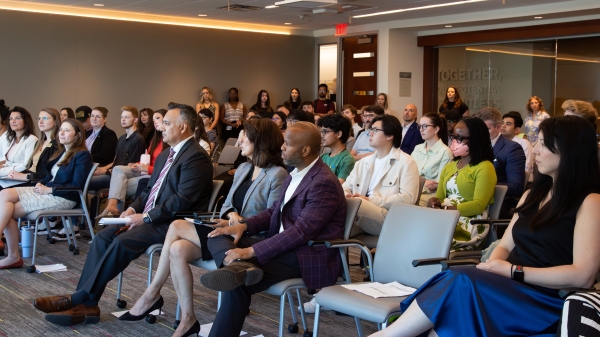
Blackstone LaunchPad program to support student entrepreneurship skills
The Blackstone Charitable Foundation has awarded a $1 million grant to establish its signature Blackstone LaunchPad program at Arizona State University, and an additional grant to fund paid summer…
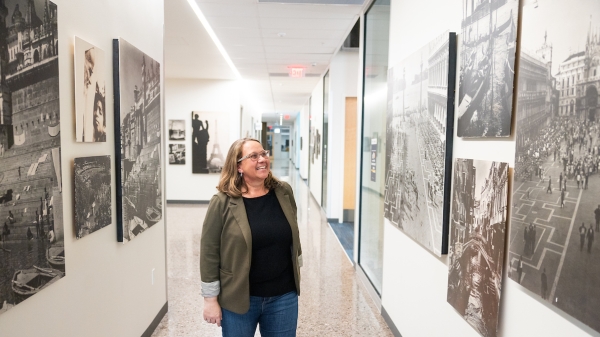
Thunderbird archives: These walls do talk
Editor’s note: This is part of a monthly series spotlighting special collections from ASU Library’s archives throughout 2024. At most universities, if you want to learn about their history, you must…
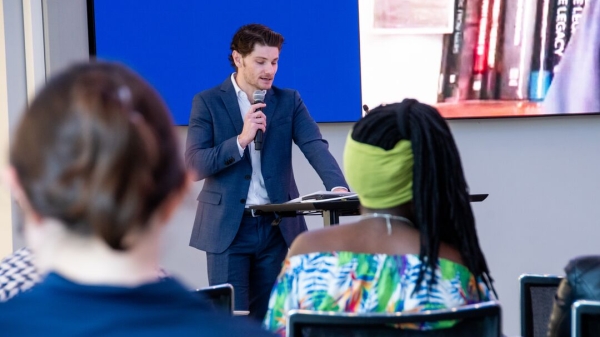
California roots, global impact: Thunderbird at ASU grad's journey in global management
Editor’s note: This story is part of a series of profiles of notable spring 2024 graduates. Lake Forest, California, native Kyle Kay was attracted to Thunderbird School of Global Management at…
